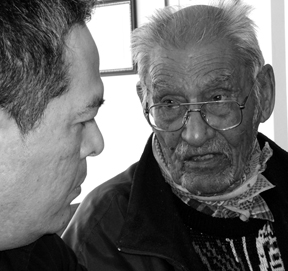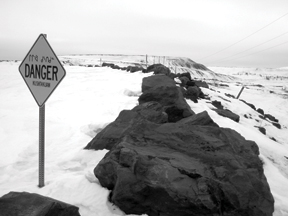 HELENA, Mont. - Last year the Center's executive director, Tim Coulter, was part of an international fact-finding mission led by Innu attorney and human rights activist Armand MacKenzie to document information about Canada's violations of Innu land rights in preparation for interventions from United Nations human rights bodies.
HELENA, Mont. - Last year the Center's executive director, Tim Coulter, was part of an international fact-finding mission led by Innu attorney and human rights activist Armand MacKenzie to document information about Canada's violations of Innu land rights in preparation for interventions from United Nations human rights bodies.
Without the consultation or consent of the Innu people, Canada unilaterally extinguished Innu land rights and proceeded to flood Innu hunting grounds and burial sites. They also bulldozed homes and forcibly relocated the Innu under colonial policies designed to force the Innu from their land so it could be opened to non-Native resource development. The forced relocation led to cultural disintegration, high rates of poverty, alcoholism and suicide.
Mackenzie recently called attention to Labrador's efforts to develop another hydroelectric project without compensating the Innu people, noting that this action violates Article 28 of the United Nations Declaration on the Rights of Indigenous Peoples. (see story below)
 Article 28 of the Declaration reads:
Article 28 of the Declaration reads:
1. Indigenous peoples have the right to redress, by means that can include restitution or, when this is not possible, just, fair and equitable compensation, for the lands, territories and resources which they have traditionally owned or otherwise occupied or used, and which have been confiscated, taken, occupied, used or damaged without their free, prior and informed consent.
2. Unless otherwise freely agreed upon by the peoples concerned, compensation shall take the form of lands, territories and resources equal in quality, size and legal status or of monetary compensation or other appropriate redress."
Read THE CANADIAN PRESS article about the Innu Nation's call for reparations.
